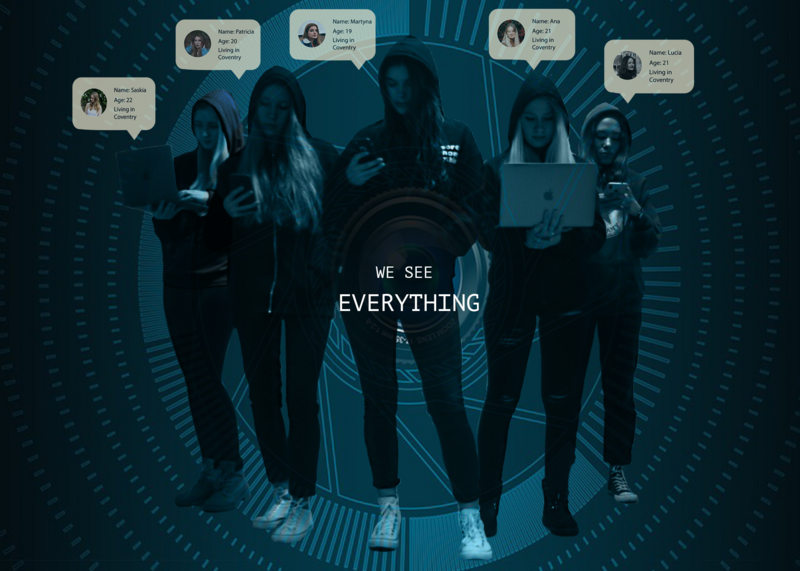According to a recent article published in The Times, children as young as nine have been investigated by police for non-crime hate incidents (NCHIs). A freedom of information request revealed that a child called a classmate a ‘retard’ while two schoolgirls were added to the naughty list for claiming a fellow pupil smelt ‘like fish’, among other, quite frankly, absurd cases.
Why did the police get involved? What justification could there be for involving them in such trivial matters? This is surely a problem that needs to be addressed by the school and parents. How about forcing the guilty parties to issue an apology? Police have better things to do than keep an eye on kids’ tantrums and outbursts on the playground.
British police forces recorded over 13,200 of these non-crimes in the year ending June 2024. Norfolk police recorded one of the most ridiculous incidents against an individual for calling a Welsh person a ‘sheep shagger’, while another was reported for asking if a Chinese takeaway came ‘with bats’. As a resident of low-lying rural Norfolk, I can tell you that the biggest issue here is not hurtful words but agricultural crime.
Even an award-winning journalist can fall foul of the law. Earlier this month, it was reported that two Essex police officers were dispatched to the home of Daily Telegraph journalist Allison Pearson to inform her she was under investigation for allegedly inciting racial hatred in a tweet sent a year ago. The policemen did not tell her what she was accused of saying. Whatever the truth about whether this was recorded as an NCHI or not, the force appears to take a stern line when it comes to rude words online. Essex Chief Constable Ben Julian Harrington equates hate crime to rape and domestic abuse. So, if you want the police to turn up at your burgled house, just tell them you misgendered a trans woman.
NCHIs, which have been tracked in England and Wales since 2014, make a mockery of policing by consent. They were created with the noble intention of monitoring incidents that could escalate into actual violent crimes. However, as is often the case when the state attempts to eliminate offence and regulate speech, it quickly devolved into an Orwellian nightmare. The College of Policing (CoP) developed the concept in its Hate Crime Operational Guidance document and defines NCHIs as ‘Any non-crime incident which is perceived by the victim or any other person to be motivated by hostility or prejudice’ to the victim based on protected characteristics, including race, religion, sexual orientation, and disability.
This is a perception-based crime (or ‘non-crime’). It means that anyone can claim to have been offended, and it automatically becomes a police issue. The police do not necessarily require any evidence of hostility before recording an NCHI. You may inadvertently find your name being recorded merely on the basis of an accusation. With such a broad and arbitrary definition, it is easy to end up on an officer’s naughty list. More than 120,000 of these incidents were recorded by the police between 2014 and 2019 in England and Wales.
Although these are non-criminal actions, the incidents are recorded and kept on file and can show up on criminal record background checks for the next six years. And with no right to appeal, these kids can kiss goodbye to a paper round or Saturday job. Since 2014, over 2,000 NCHIs have been recorded in England and Wales against those under the age of 17. The most ridiculous case came in 2022 when Wiltshire police opened a hate incident because an 11-year-old boy was called ‘leprechaun’ and ‘shorty’ by another boy in the street.
Despite a slight improvement in the rules surrounding the recording of NCHIs brought about by a statutory instrument and new guidance from then-Home Secretary Suella Braverman last year, things seem to be going backwards. Labour’s new Home Secretary does not appear to support free speech. Yvette Cooper looks to be planning to overturn Braverman’s 2023 guidance and expand the use of NCHIs to combat allegedly hateful speech. Cooper seems to believe that the new rules limit the police’s ability to record NCHIs. As part of a new ‘zero tolerance’ approach to protecting communities from abusive comments, she emphasises the need to combat the rise of anti-Semitism and Islamophobia.
But we already have laws in place to protect individuals from physical violence. Contrary to what these authoritarians believe, words are not violent. Heavy-handed, top-down enforcement will always fall victim to the law of unintended consequences. When you protect a minority from offence, you breed resentment among the majority. And that is the problem: when you prioritise one group over another, you undermine the democratic concept of equality before the law.
This nonsense distracts the police from doing their actual job of maintaining law and order. During opposition, Labour slammed the Conservatives’ appalling record on crime, with a staggering 90% of crimes unsolved in 2023. Now they are in power—and nothing has changed. Maybe it’s easier to write a nine-year-old’s name on a form than it is to chase a criminal.
It’s time for the police to stop using NCHIs. They are straight out of the dictator’s handbook in terms of policing speech. These Orwellian instruments are anti-democratic, and no one voted for them—NCHIs are guided by the CoP, an unelected commission, rather than by legislation passed by our elected politicians.
Such authoritarianism is bad enough when applied to adults. When the thought police patrol the innocence of childhood, you know you’re on the path to tyranny.
Read more perspectives on free speech from Freethinker contributors here.









1 comment
I suppose the name says it all: non-crime hate incidents. The police services are supposedly for deterring and solving crimes, not non-crimes.
Your email address will not be published. Comments are subject to our Community Guidelines. Required fields are marked *
Donate